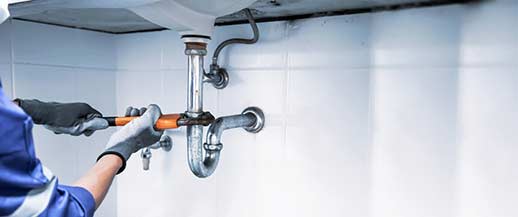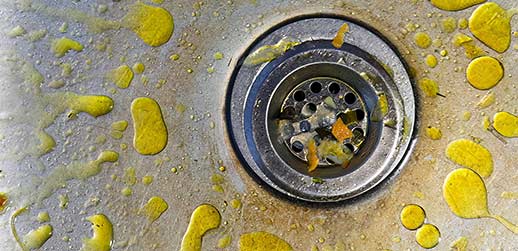
Having a functioning plumbing system is essential for any home or building. A well-maintained plumbing system not only ensures the flow of clean water but also promotes the removal of waste efficiently. However, leaks in the plumbing system can occur over time due to wear and tear or other factors. These leaks can lead to water damage, increased water bills, and even mold growth. To prevent such issues and keep your plumbing system in top shape, it is important to follow some essential tips. Below we will discuss various preventive measures and maintenance practices that can help you avoid leaks and ensure the longevity of your plumbing system.
Regular Inspection
One of the key ways to prevent leaks in your plumbing system is by conducting regular inspections. This allows you to identify any signs of potential leaks or other issues before they turn into major problems. Inspect the visible plumbing pipes for signs of corrosion, rust, or leaks. Look for any water stains on ceilings, walls, or floors, as they can indicate a hidden leak. Additionally, check for dripping faucets, loose or worn-out connections, and water pressure irregularities. By inspecting your plumbing system regularly, you can catch problems early on and address them promptly.
Maintain Proper Water Pressure
Water pressure that is too high can put excessive strain on your plumbing system, leading to leaks and other issues. It is important to maintain appropriate water pressure to prevent unnecessary stress on the pipes. You can use a water pressure gauge to measure the pressure and ensure it falls within the recommended range, usually between 40 to 80 psi (pounds per square inch). If the pressure is too high, consider installing a pressure regulator to regulate the flow of water and prevent potential damage to your plumbing system.
Insulate Exposed Pipes
In cold climates, it is crucial to insulate exposed pipes to prevent them from freezing and potentially bursting. Frozen pipes can lead to significant water damage and costly repairs. Insulation sleeves or foam insulation can help protect the pipes from freezing temperatures. Additionally, insulating the pipes can also help conserve energy by reducing heat loss as the water travels through them. Make sure to insulate both hot and cold water pipes.

When grease and oil are poured down the drain, they can solidify and block the pipes over time.
Properly Dispose of Grease and Food Waste
Improper disposal of grease, oil, and food waste can cause clogs in your plumbing system. When grease and oil are poured down the drain, they can solidify and block the pipes over time, leading to backups and potential leaks. Instead of pouring grease down the drain, let it cool and dispose of it in a sealed container. Use strainers or drain guards to catch food particles and prevent them from going down the drain. By properly disposing of grease and food waste, you can avoid unnecessary plumbing problems.
Be Mindful of What You Flush
Toilets are not designed to handle anything other than human waste and toilet paper. Flushing items such as paper towels, feminine hygiene products, or cleaning wipes can cause blockages in your plumbing system and lead to leaks or backups. Educate everyone in your household or building about what can and cannot be flushed down the toilet. Provide clearly marked trash bins in the bathroom to encourage proper disposal.
Avoid DIY Plumbing Repairs
While it can be tempting to try and fix plumbing issues yourself, it is generally best to leave repairs to the professionals. Improper repairs can result in further damage and potentially worsen leaks. Hiring a licensed plumber ensures that the repairs are done correctly and effectively. Additionally, professional plumbers have the necessary tools and expertise to identify and address underlying problems that may not be apparent to the untrained eye.
Regular Maintenance
Regular maintenance is essential for keeping your plumbing system in top shape. Here are a few maintenance practices to consider:
Drain Cleaning
Over time, debris, hair, and other substances can accumulate in your drains, leading to clogs. Schedule regular drain cleaning to prevent blockages and maintain proper drainage. You can use a plunger or an eco-friendly drain cleaner to clear minor blockages. For more stubborn clogs, consider contacting a professional hydro jetting service.
Water Heater Maintenance
Your water heater plays a crucial role in your plumbing system. It is important to maintain it properly to ensure its longevity and efficiency. Regularly drain and flush the water heater to remove sediment buildup. Check the pressure relief valve and ensure it is functioning correctly. If you notice any issues or unusual noises coming from the water heater, contact a professional for inspection and repairs.
Check for Leaks
Periodically check all faucets, showerheads, and toilets for leaks. Even a small, unnoticed leak can waste a significant amount of water over time. Repair any leaks promptly to prevent further damage and conserve water.
Septic Tank Maintenance
If you have a septic system, regular maintenance is essential to prevent leaks and keep it functioning properly. Have your septic tank pumped out at recommended intervals. Avoid flushing harmful chemicals or large quantities of non-biodegradable substances down the drain, as they can disrupt the natural balance of the septic tank.
Professional Inspections
Hiring a professional plumber for periodic camera inspections of your sewer line can help catch potential issues early on. They can perform thorough checks of your plumbing system and identify any underlying problems that may not be visible to the untrained eye.
To Conclude
Preventing leaks and maintaining a well-functioning plumbing system is crucial for the overall health and efficiency of your home or building. By following the essential tips mentioned in this article, such as conducting regular inspections, maintaining proper water pressure, and practicing regular maintenance, you can keep your plumbing system in top shape and avoid costly repairs. Remember, when in doubt, always consult a professional plumber to ensure that your plumbing system receives the care it deserves.